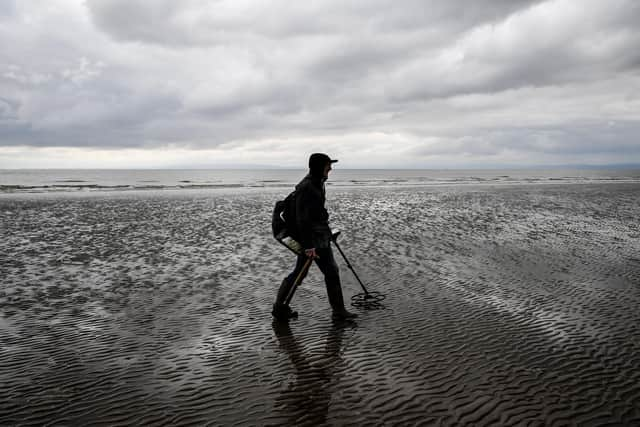Falkirk metal detectorist reveals all about finding treasure trove across Scotland
and live on Freeview channel 276
Alan Baxter, 44, is a lab technician but much of his spare time is spent in his intriguing hobby of metal detecting: an interest he picked up over 12 years ago from his father, also called Alan.
Between them the pair have unearthed some exciting finds across Scotland from the Bronze Age to the post-medieval era.
Advertisement
Hide AdAdvertisement
Hide AdThis includes an Iron Age hoard which, according to archaeologist Geoff Bailey was “one of the most significant metallic finds in Falkirk District since 1933”.


Two years ago, while searching in a field in Fife, he unearthed a hoard of farthings from the reign of 15th Century Scottish King James III.
The 500-year-old coins, which were made of copper and were worth a quarter of a penny, were in very good condition. According to Alan, it was “extraordinary” to hold something which was so old and had been in the ground for centuries.
An expert at the National Museum of Scotland said it was the first hoard of James III farthings to be found since 1919.
Advertisement
Hide AdAdvertisement
Hide AdAlan, who lives in Falkirk, has now written a book to share his experience and his knowledge, including the rules surrounding metal detecting.


Before you start wandering over someone’s land you must find as the landowner’s permission and anything you find must be handed to the Treasure Trove for analysis and recording.
Under Scottish law all finds of archaeological, historical or cultural significance must be reported and can be claimed by the Crown.
If the find is allocated to a museum through the Treasure Trove system, then this is usually acknowledged by an award paid to the detectorist – who then nearly always split the money with the landowner.
Advertisement
Hide AdAdvertisement
Hide AdAlan’s book, Making History: My Life as a Scottish Metal Detectorist, will be published on April 19. However, the day before there will be an opportunity to hear from the author, as well as buy copies of his book at an event in Falkirk Library.
It runs from 2.30pm to 3.30pm in the Hope Street building and is free but book a place here
Comment Guidelines
National World encourages reader discussion on our stories. User feedback, insights and back-and-forth exchanges add a rich layer of context to reporting. Please review our Community Guidelines before commenting.